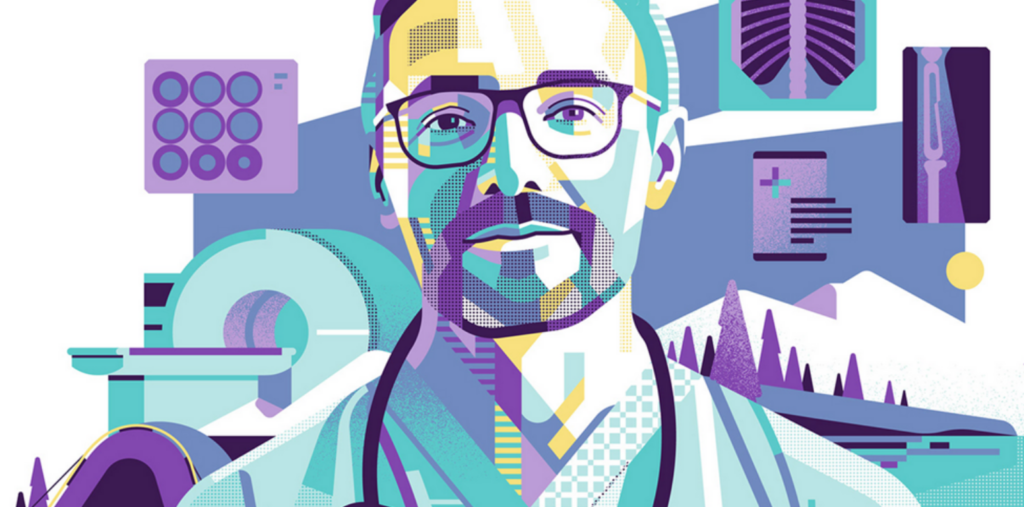blog post
AI in Healthcare

Last week at the ViVE conference in Los Angeles, thousands of health care leaders convened to discuss the integration of health information management and technology into health care delivery. The event spotlighted the transformative potential of digital health technologies, especially artificial intelligence (AI). Here are four insights into how AI might reshape health care in the next 12 to 24 months:
- AI-Enhanced Ambient Listening Technologies to Lighten Clinician Workloads
The standout innovation at the conference was AI-driven ambient listening technology. This tool automatically generates clinical documentation as clinicians speak during patient interactions, substantially reducing the time they spend on administrative tasks. John Brownstein, chief innovation officer at Boston Children’s Hospital, shared that 99% of patient caregivers agreed to use this technology when they were informed about it, suggesting a likely high adoption rate among healthcare providers.
- AI as a Decision-Support Tool for Clinicians
Currently, there’s a cautious approach towards AI making clinical decisions. However, AI as a decision-support system offers significant promise. Eve Cunningham, M.D., chief of virtual care and digital health at Providence, explained that medical knowledge now doubles every 73 days. To keep up, Providence employs MedPearl, a digital assistant that suggests the next best steps in patient care. This tool has helped streamline patient referrals and diagnostics, shortening the time to treatment by providing critical data insights directly within the clinicians’ workflow.
- Building Trust in AI through Transparency
Trust in AI technologies can be fostered or fractured by how openly they are implemented. Richard Clark, chief analytics officer at Highmark Health, emphasized the importance of transparency. He suggests that organizations should publish transparency reports detailing the AI model’s intent, its training data sets, and its testing across different patient demographics to mitigate skepticism from both healthcare providers and patients.
- Bridging Patient-Centered and Provider-Centered Care with AI
Traditionally, health care models have been more provider-centric, prioritizing the convenience of the provider over the patient. AI tools are set to blur these distinctions, creating a more harmonious balance between patient needs and provider efficiency. Brendan Carr, M.D., CEO of Mount Sinai Health System, noted that AI is smoothing the delivery process, enhancing care quality for both parties involved.
These discussions highlight a critical phase in health care—embracing AI not just for its technological capabilities but for its potential to fundamentally improve the efficiency and quality of care, and that, while a small step forward is indeed a step nonetheless.
And AI gets smarter every minute.
Author
Steve King
Senior Vice President, CyberEd
King, an experienced cybersecurity professional, has served in senior leadership roles in technology development for the past 20 years. He began his career as a software engineer at IBM, served Memorex and Health Application Systems as CIO and became the West Coast managing partner of MarchFIRST, Inc. overseeing significant client projects. He subsequently founded Endymion Systems, a digital agency and network infrastructure company and took them to $50m in revenue before being acquired by Soluziona SA. Throughout his career, Steve has held leadership positions in startups, such as VIT, SeeCommerce and Netswitch Technology Management, contributing to their growth and success in roles ranging from CMO and CRO to CTO and CEO.
